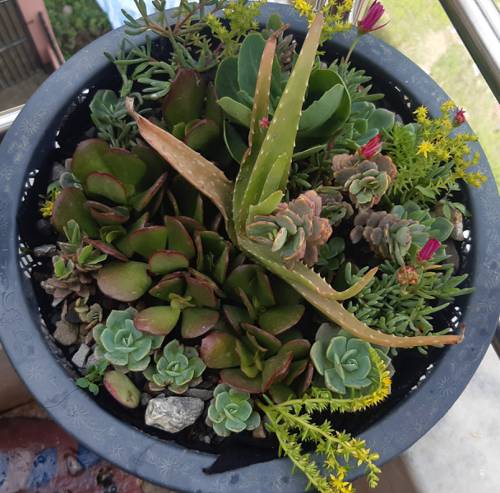
FAQ About Indoor Plants for Aromatherapy Benefits

What are indoor plants that provide aromatherapy benefits?
Several indoor plants are known for their aromatherapy benefits. These include lavender, eucalyptus, peppermint, rosemary, lemon balm, and jasmine. Each of these plants emits natural fragrances that can have calming, invigorating, or mood-boosting effects on mental well-being.

How does lavender benefit mental well-being in aromatherapy?
Lavender is widely used in aromatherapy for its calming and relaxing properties. The scent of lavender is known to help reduce stress, anxiety, and even improve sleep quality, making it a popular choice for enhancing mental well-being.

Can eucalyptus be grown indoors for aromatherapy purposes?
Yes, eucalyptus can be grown indoors and is often used in aromatherapy to promote relaxation and ease respiratory issues. It requires a bright spot with plenty of sunlight and regular watering, though it should not sit in standing water.

What type of care do peppermint plants need indoors?
Peppermint is an easy-to-care-for indoor plant that thrives in well-drained soil and requires indirect sunlight. It should be watered regularly to keep the soil moist but not soggy. Peppermint releases a refreshing scent that can improve focus and boost energy levels.

How can rosemary be used in aromatherapy?
Rosemary can be used in aromatherapy by simply inhaling its woody fragrance, which is believed to enhance memory, improve concentration, and reduce stress levels. It requires well-drained soil and lots of sunlight to thrive indoors.

What are the benefits of lemon balm in aromatherapy?
Lemon balm, with its lemon-scented leaves, is used in aromatherapy for its calming effects. It can help reduce anxiety and promote a sense of calm, making it an excellent choice for stress relief. Indoors, it needs bright, indirect light and regular watering.

Is jasmine effective in aromatherapy for mental well-being?
Jasmine is highly effective in aromatherapy due to its sweet, floral aroma that is known to relieve stress and promote relaxation. It can also lift mood and reduce symptoms of depression. Jasmine prefers bright, filtered light and humid conditions.

Can indoor aromatherapy plants purify the air?
Many indoor plants, including those used for aromatherapy, have air-purifying properties, as they can remove toxins and improve indoor air quality. Plants like lavender, eucalyptus, and rosemary are known for their ability to cleanse the air while providing aromatic benefits.

How do I harvest essential oils from aromatherapy plants?
Essential oils can be harvested from aromatherapy plants by using methods such as steam distillation, cold pressing, or simple infusion methods. However, these processes can be complex, so many people prefer to purchase essential oils from trusted suppliers for convenience.

Are there any indoor plants that can help with sleep through aromatherapy?
Lavender, jasmine, and valerian are indoor plants known to aid sleep through aromatherapy. Their calming scents can help induce relaxation and improve sleep quality by reducing anxiety and stress levels.

How does indoor humidity affect aromatherapy plants?
Indoor humidity is crucial for aromatherapy plants, as many thrive in higher humidity levels. For example, plants like jasmine and eucalyptus require moist conditions, which can be maintained using a humidifier or by misting the plants regularly.

What are common misconceptions about aromatherapy plants?
A common misconception is that all aromatic plants are low-maintenance; however, each plant has specific requirements regarding light, soil, and water. Another is that they can immediately resolve mental health issues, whereas they can only aid in reducing symptoms in conjunction with other treatments.

Can children benefit from aromatherapy with indoor plants?
Children can benefit from aromatherapy, as scents like lavender can help calm them and improve sleep. However, it is important to ensure they do not ingest the plants or oils, as some may be toxic if consumed.

Are there any safety concerns with using indoor plants for aromatherapy?
While many aromatherapy plants are safe, certain species can be toxic to pets or humans if ingested. Ensure plants are kept out of reach of pets and small children. It's also important to be aware of any allergies to specific plant scents or their essential oils.

How can I enhance the aromatic effects of indoor plants?
You can enhance the aromatic effects of indoor plants by placing them in naturally warm areas, using a humidifier to increase humidity, or gently crushing the leaves to release more scent. Additionally, using an essential oil diffuser alongside live plants can amplify their aroma.

What is the role of light in the growth of indoor aromatherapy plants?
Light is essential for the photosynthesis process in plants, which contributes to their health and ability to emit beneficial scents. Most aromatherapy plants require bright, indirect sunlight to thrive, though the specific light needs can vary between species.

Can I mix different aromatherapy plants indoors for enhanced benefits?
Yes, you can mix different aromatherapy plants indoors to create a multi-sensory environment that capitalizes on their various scents and benefits. Just ensure that each plant's care requirements such as light, water, and humidity are adequately met.

How often should I water aromatherapy plants?
The watering needs of aromatherapy plants vary, but generally, they should be watered when the top inch of soil feels dry. Overwatering should be avoided as it can lead to root rot. Pay attention to each plant's specific hydration requirements.

Do indoor plants for aromatherapy require fertilizer?
Most indoor plants, including aromatherapy varieties, benefit from regular fertilization during their growing season. Use a balanced, water-soluble fertilizer every 4-6 weeks to keep them healthy and support their fragrance emission.

What are the best tips for maintaining indoor aromatherapy plants?
Some tips for maintaining indoor aromatherapy plants include providing them with adequate light, ensuring they have the right humidity levels, watering appropriately, and pruning them regularly to encourage growth. Additionally, using organic fertilizers can enhance their health and aromatic properties.
